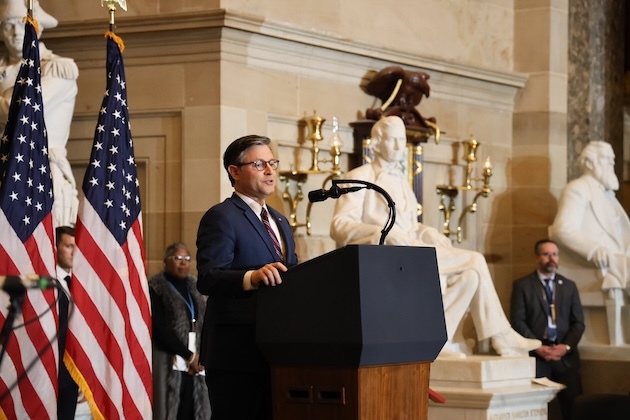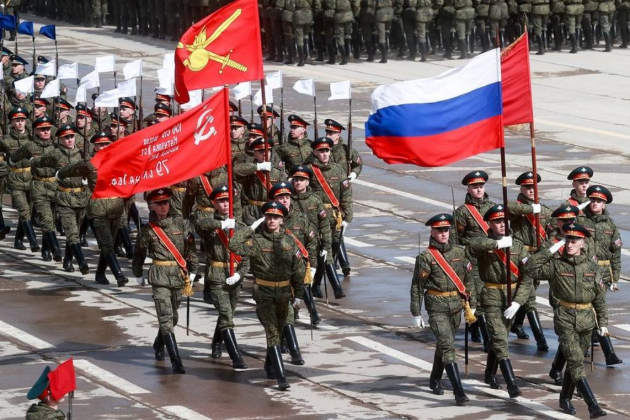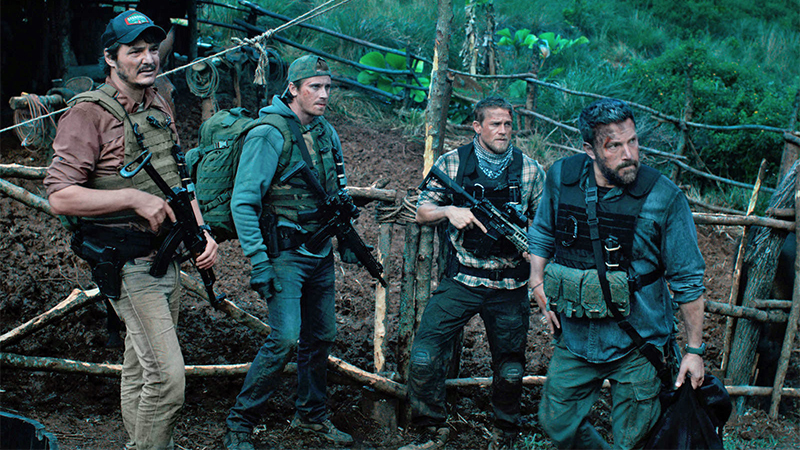Colombia: Fleeing the thunder of violence in Catatumbo
UN
21 Feb 2025, 17:30 GMT+10

Around 80,000 people in northeastern Colombia are suffering the devastating consequences of an armed conflict that escalated on 15 January of this year. Caught in the crossfire between armed groups, thousands have been forced to flee with nothing but the clothes on their backs while others remain trapped in their homes.
The recent deadly violence in Colombias Catatumbo region has highlighted the ongoing challenges in consolidating peace, eight years after the signing of the 2016 Final Peace Agreement, the UN Security Council heard on Wednesday.
"What do I want the river to carry away? The deforestation," Sandra Donado says, her voice competing with the sudden storm lashing her canoe as it floats down the Guaviare River in Colombias Amazon biome region.
Miguel ngel Lpez, the director of a funeral home in Tib, used to recover bodies that appeared along the roads of one of Colombias most violent regions, Catatumbo. On 15 January, he was murdered along with his wife and their 10-month-old baby while driving a hearse toward Ccuta, according to local media reports. Only their 10-year-old son survived.
Less than 24 hours later, several former combatants who had signed the 2016 Peace Agreement between the Colombian Government and the FARC-EP armed group were killed.
Since then, thousands have fled as a conflict between the National Liberation Army (ELN) and the FARC group 33rd Front hasclaimed the lives of at least 80 peopleand displaced entire communities.
Targeted killings
Diego Andrs Garca, who works for the UN refugee agency,UNHCR, and coordinates the response of UN agencies and other organizations, said more than 53,000 people have moved to urban centres such as Ccuta, Ocaa and Tib
Human rights leaders had to leave the area due to threats from the armed groups, he explained During their departure, there were massacres, targeted killings of leaders and family members being murdered.
Videos circulating on social media captured the horror of the violence: gunfights, neighbours fleeing on foot, by motorcycle or in boats and teachers from remote areas abandoning their posts, leaving 46,000 children without access to education.
I lost everything, said Mara*, one of the displaced people assisted by UNHCR. I had to leave with nothing. There was no time.
UNHCR/Mnica PearandaThousands of people have been forced to flee the violence in Catatumbo, seeking safety in Ccuta.House of thunder under fire
Catatumbo, which means house of thunder in the Bar Indigenous Peoples language, is a remote and impoverished region rich in biodiversity and natural resources, crisscrossed by rivers and streams in the countrys northeast along the Venezuelan border.
It is also contested territory due to its importance in mining, coca production and illicit trafficking coupled with the States weak presence. In recent months, the region has shifted from a tense co-existence between armed groups to an open war for control of the drug trade.
Responding to the crisis, President Gustavo Petro declared a state of emergency in Catatumbo and deployed rapid reaction military units to Ocaa, Norte de Santander. On 17 January, the Colombian president also decided to break peace negotiations with the ELN.
Emergency aid response
UN agencies are now assisting displaced people by providing water, food, hygiene kits, blankets and mattresses to serve more than 46,000 displaced people who sought safety in Ccuta, Ocaa and Tib.
In the initial phase of the emergency, agencies responded with local funds allocated for Norte de Santander, however, with more than 80,000 people affected, the situation surpasses the capacities of local partners, institutions and even the national government, UNHCRs Mr. Garca said.
The UNs humanitarian coordinator, Tom Fletcher,approved the allocation of $3.8 millionfrom theCentral Emergency Response Fund (CERF)to Colombia, allowing for an expanded response to support protection efforts and provisions of shelter, water, sanitation, education, health, food security and nutrition.
Thousands remain trapped
The emergency funds also aim to reach thousands trapped in their homes in the mountain region.
Nearly 8,500 people remain in remote hamlets they cannot leave and where aid cannot reach them, while another 19,000 are facing movement restrictions preventing them from reaching urban centres.
We are waiting for humanitarian access guarantees so we can deploy responses with our partners, Mr. Garca explained.
Courtesy of Norte de Santander Government Aerial image of the Catatumbo region, Colombia.Cocaine wars
Six decades of conflict in Colombia have claimed 450,000 lives and displaced eight million people, ending eight years ago,when the government and FARC-EP signed a peace agreement that has achieved notable progress.
However, the FARCs withdrawal from regions like Catatumbo had created a power vacuum quickly filled by other armed groups, including the ELN and dissident factions of the FARC.
This shift reignitedterritorial disputesin Catatumbo, one of the most complex areas of the conflict due to its remote location along the Venezuelan border. The region is rich in oil and is the countrys largest coca-growing enclave, with multiple armed groups operating within it.
Tib, a municipality near the Venezuelan border,has the highest number of coca plantations in Colombia, with 23,030 hectares, according to a study by the United Nations Office on Drugs and Crime (UNODC). The Catatumbo region ranksthird nationwide, with 43,867 hectares, following the Pacific region (107,078 hectares) and Putumayo-Caquet (56,933 hectares).
Worst humanitarian crisis
Violence abruptly erupted in mid-January between the ELN and the 33rd Front in the region, forcing thousands to flee the fighting.
We left in fear, said Sebastin*. I left my little land behind. My family and I are now separated.
Diego Tovar, a former guerrilla and signatory of the peace treaty,told the UN Security Councilat an emergency meeting on 22 January that this is the worst humanitarian crisis we have faced in Colombia since we signed the agreement.
At the same meeting, Carlos Ruiz Massieu, head of theUN missionresponsible for verifying the peace accord,saidCatatumbo, like many regions in Colombia, is still waiting for the dividends of the 2016 Peace Agreement, such as a comprehensive State presence that brings public services, legal economies, development opportunities and security.
It is in the absence of the State that illegal armed groups fight for territorial and social control, hesaid.
UNHCR/Mnica PearandaUNHCR staff at the General Santander Stadium, Ccuta, where thousands of displaced people from Catatumbo have arrived.From books to shelter
For now, UN agencies and partners are striving to deliver essential goods and services to those in need, including educational kits and mental health support for thousands of displaced children forced out of school and shelter for those who fled the violence.
We need to understand that this could be a prolonged emergency, UNHCRs Mr. Garca warned.
Echoing the wishes of many of the displaced people around him, Santiago* said he simply wants to go home.
All we want is to return, he said, but we cant.
UNHCR/Mnica PearandaThousands of people have been forced to flee the violence in Catatumbo, seeking safety in Ccuta.Courtesy of Norte de Santander Government Aerial image of the Catatumbo region, Colombia.UNHCR/Mnica PearandaUNHCR staff at the General Santander Stadium, Ccuta, where thousands of displaced people from Catatumbo have arrived. Share
Share
 Tweet
Tweet
 Share
Share
 Flip
Flip
 Email
Email
Watch latest videos
Subscribe and Follow
Get a daily dose of Africa Leader news through our daily email, its complimentary and keeps you fully up to date with world and business news as well.
News RELEASES
Publish news of your business, community or sports group, personnel appointments, major event and more by submitting a news release to Africa Leader.
More InformationInternational
SectionRecord cold grips millions as US battles deep freeze
BISMARCK, North Dakota: More than 95 million people faced extreme cold on February 18 as a polar vortex sent temperatures to record...
Taiwan defends Strait’s status after China criticizes Canada
TAIPEI/BEIJING: Taiwan's defense ministry said this week that the Taiwan Strait does not belong to China, and any attempts to create...
No unified European army despite Russian threat, says Polish FM
WARSAW, Poland: European nations will not form a single, unified army despite growing security concerns over Russia, Polish Foreign...
Speaker Mike Johnson: Western survival hinges on national priorities
LONDON, U.K.: Republican U.S. House Speaker Mike Johnson said this week that Western countries must focus on their national interests...
First human H5N1 case confirmed in Wyoming as bird flu spreads
CHEYENNE, Wyoming: The state reported its first human case of Type A H5N1 influenza, which is spreading through animals and some people...
Europe faces hard choices amid rising threats, warns French FM
MUNICH, Germany: Speaking at the Munich Security Conference, French Foreign Minister Jean-Noel Barrot warned that Europe must brace...
Business
SectionThames water secures legal lifeline, avoids collapse
LONDON, U.K.: A judge has approved an emergency financial plan to prevent Britain's largest water company, Thames Water, from collapsing,...
U.S. stocks tumble as Trump policies startle investors
NEW YORK, New York - Concerns over U.S. President Donald Trump's startling diversions from his country's long-held policies, and the...
Southwest Airlines cuts 1,750 corporate jobs in first-ever layoffs
DALLAS, Texas: Southwest Airlines is laying off 1,750 employees, or 15 percent of its corporate staff, in the company's first significant...
Australian central bank cuts interest rates for first time since 2020
MELBOURNE, Australia: Australia's central bank has cut its benchmark interest rate for the first time in more than three years, signaling...
Brazil joins OPEC+ ahead of key UN climate summit
BRASILIA, Brazil: Brazil has officially approved joining OPEC+, aligning itself with the world's major oil-exporting nations just months...
U.S. stock markets in sharp retreat Thursday
NEW YORK, New York - U.S. stocks fell sharply Thursday as profit-takers moved in to take the cream off the substantial gains that have...













